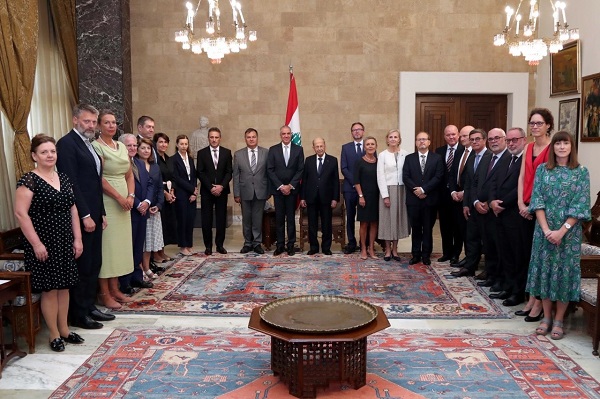Beirut, (Asian independent) The European Union (EU) diplomat to Lebanon said that the bloc is ready to support the crisis-hit country on condition that Beirut implements needed structural reforms.
EU Ambassador Ralph Tarraf made the remarks in a meeting with Lebanese President Michel Aoun, with the attendance of ambassadors of Switzerland and Norway, to express their growing concern about the current situation in the country amid a crippling economic crisis, reports Xinhua news agency.
The bloc is ready to support Lebanon “politically and financially, in the context of implementing a sound economic recovery plan and an IMF program”, Tarraf said.
“We urged the president to do his utmost to support and actively contribute to implementing crucial economic, monetary, and fiscal reforms that Lebanon has committed to,” he noted, stressing “now is the time” for Lebanon to implement measures it agreed with the International Monetary Fund, as detailed in a staff-level agreement between the two sides in early April.
For his part, Aoun said Lebanon needs political and sovereign reform and structural changes in the system.
“It is difficult to run a country governed by three different leaders, which is why we are witnessing this kind of constitutional chaos, especially that the newly elected MPs (parliament members) have divergent affiliations,” he said.
The meeting came a day after the Lebanese pound on Monday sank to a new historic low against the US dollar on the parallel market as the country continues to suffer from a steep financial crisis and a political deadlock.
On Monday, the exchange rate of the Lebanese pound declined to 39,000 against the dollar, down from the previous record low of 36,600 on September 13.
In May, the exchange rate of the currency declined to 34,000 against the US dollar.
Since 2019, Lebanon has been suffering from an unprecedented financial crisis that resulted in the collapse of the local currency.
Hit by intertwined political, economic and health crises, Lebanon’s poverty rate now has risen to more than 74 per cent, according to the World Bank.








